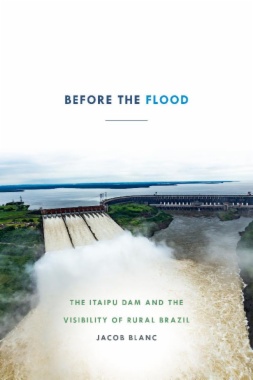In Before the Flood Jacob Blanc traces the protest movements of rural Brazilians living in the shadow of the Itaipu dam—the largest producer of hydroelectric power in the world. In the 1970s and 1980s, local communities facing displacement took a stand against the military officials overseeing the dam's construction, and in the context of an emerging national fight for democracy, they elevated their struggle for land into a referendum on the dictatorship itself. Unlike the broader campaign against military rule, however, the conflict at Itaipu was premised on issues that long predated the official start of dictatorship: access to land, the defense of rural and indigenous livelihoods, and political rights in the countryside. In their efforts against Itaipu and through conflicts among themselves, title-owning farmers, landless peasants, and the Avá-Guarani Indians articulated a rural-based vision for democracy. Through interviews and archival research—including declassified military documents and the first-ever access to the Itaipu Binational Corporation—Before the Flood challenges the primacy of urban-focused narratives and unearths the rural experiences of dictatorship and democracy in Brazil.
- Cover
- Contents
- Abbreviations
- Note on Terminology and Orthography
- Acknowledgments
- Introduction. History as Seen from the Countryside
- Chapter 1. Borders, Geopolitics, and the Forgotten Roots of Itaipu
- Chapter 2. The Project of the Century and the Battle for Public Opinion
- Chapter 3. The Double Reality of Abertura: Rural Experiences of Dictatorship and Democracy
- Chapter 4. Sem Tekoha não há Tekó: Avá-Guarani Lands and the Construction of Indigeneity
- Chapter 5. The Last Political Prisoner: Borderland Elites and the Twilight of Military Rule
- Chapter 6. “Men without a Country”: Agrarian Resettlement and the Strategies of Frontier Colonization
- Chapter 7. Land for Those Who Work It: MASTRO and a New Era of Agrarian Reform in Brazil
- Conclusion. After the Flood
- Notes
- Bibliography
- Index

